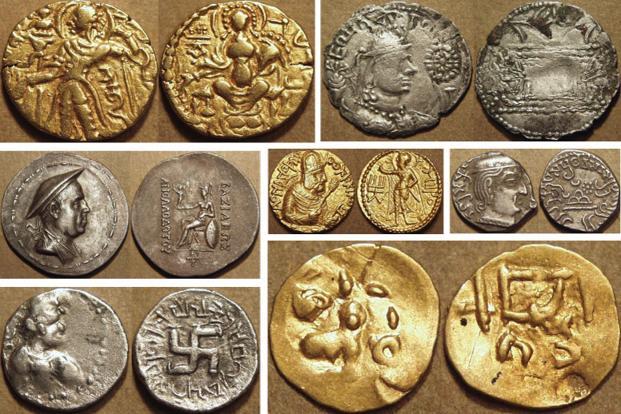Also we have questions regarding what is the duty of a Master?
One seeker asked Osho – I WOULD HAVE LEFT YOU HAD I NOT TAKEN SANNYAS FROM YOU.
MOREOVER, MY PREVIOUS MASTER NOW WOULD NOT ACCEPT ME, PERHAPS, BECAUSE I BETRAYED HIM AND LOST MY FAITH. ANYWAY I DON’T WISH TO LOSE FAITH IN YOU. NOW I DON’T HANKER AFTER ENLIGHTENMENT. IF YOU CAN KEEP ME BOUND TO YOUR FEET, THEN I THINK YOU HAVE DONE YOUR DUTY AS A GURU.
Many things have to be understood; they will be helpful.
The first thing: I have no duty to fulfill towards anybody. Duty is a dirty word, a four-letter word to me, the dirtiest. Love is not a duty. You enjoy, when you love helping people. It is not a duty, not a burden. Nobody is forcing me to do anything. I am not obliged in any way to do it – just love functioning.
When love dies, duty enters. You say to people, “It is my duty to go and work in the office because I got married and I have children and the duty has to be fulfilled.” You don’t love your wife, you don’t love your children – hence the word “duty” becomes meaningful. Your old mother is dying and you say, “This is a duty, to go and serve her.” You don’t love her. If you love, how can you use the word “duty”?
A policeman standing on the road is fulfilling his duty. Right, he does not love the people who are creating chaos in the traffic. When you go to your office, you are doing a duty, a job, but if you say that you are fulfilling your duty towards your children, you are committing a sin by using the word. You don’t love the children; you are already burdened.
No, I have no duty to fulfill. I love you, hence many things happen. There is nothing even to be thankful towards me for because I am not doing any duty.
When I am doing a duty, you will have to be thankful towards me. This is simply love.
In fact, I am thankful to you that you allowed my love to shower on you. You could have rejected it. And this is the secret of love: the more you love, the more it grows. The more you share it, more and vital springs are opening and more is flowing and is ready to be shared. The more you give, the more you have. I am not tired. I am not in any way weighed down by it. It’s beautiful.
The first thing: I have no duty to fulfill towards you. If you want a guru who has a duty to fulfill, you have come to a wrong person. Go somewhere else. There are many gurus who are fulfilling great duties. I am simply enjoying myself. Why should I fulfill any duty? I delight in myself, and whatsoever I do is a delight, a celebration.
“I would have left you had I not taken sannyas from you.” If the idea has come, you have already left. Physically you may be hanging around here, that is meaningless. If you say, “I would have left you had I not taken sannyas from you,” you have already left and a sannyas is worthless. Please return it back – because that is a bondage. You say, “I would have left” – now, that sannyas is creating fetters on you. Drop it. I am here to liberate you, not to fetter you. Forget about it.
“Moreover, my previous Master now would not accept me, perhaps, because I betrayed him and lost my faith.” That is for you to decide. You can go to a new Master if the old will not accept you, or you can go and try again. If the old was really a Master he will accept a thousand and one times because when a disciple betray it is nothing much to fuss about. It is almost natural. More cannot be expected from ignorant persons. Go and try the old Master. Maybe he is waiting for you. And if he cannot forgive he is not a Master; then find one somewhere else.
And, “anyway I don’t wish to lose faith in you.” You have already lost it. In fact you never had it, because once you have faith how can you lose it? Difficult to understand, but once you have faith you cannot lose it. It is nothing which can be taken back. Who will take it back? Faith means you surrender the ego. This can be the last act of the ego. Surrendered, how can you take it back? If you can take it back, the surrender was not surrender at all – you were playing with the word, but you don’t know what it means. If you surrender, to be a surrender it has to be total and final – utterly final. There is no way; going back.
“Anyway I don’t wish to lose faith in you.” Why is this idea arising? You don’t have faith; you have already lost it. In fact you never had it. This will look like a paradox, but this is true: Only that faith can be lost which was never there in the first place. If you don’t have faith you can lose it; if you have, there is no possibility. It is utterly impossible to lose it, because in faith you have lost yourself – now nobody is standing behind who can take it back and go home.
“Now I don’t hanker after enlightenment.” You are hankering; otherwise what is the need to cling to my feet? My feet are worthless. Why cling to them? What are they going to give to you? Deep down a hankering… maybe now more subtle, more garbed, not so gross, but it is still there. “If you can keep me bound to your feet….” But why? What have my feet done to you? What’s wrong? Why should you be so against my feet? What is the need? What is the point?
Just two days before, one very stupid woman came to see me. Stupid because she said, “I am in search of God.” I asked her why she is searching for God, what wrong has God done to her. I asked her, “You must be searching for something else – happiness, bliss, ecstasy…?” She said, “No. I am not interested in happiness, bliss, etcetera. I am searching for God.” “But for what?” She got so angry because I asked “for what,” she left immediately. Why should one search for God? What is the point? Looks absolutely stupid. One searches for God to be blissful. One searches for self realization to be ecstatic, to not be miserable. One searches for truth to be eternally in bliss.
In fact everybody is a hedonist and cannot be otherwise – there is no possibility.
And people who say that they are not hedonists are stupid some way or other.
They don’t understand what they are saying. Your hedonism may be this – worldly, your hedonism may be other worldly – that doesn’t matter – but everybody is a hedonist. Everybody is seeking his happiness, and everybody is selfish deep down. Otherwise it is not possible. I am not condemning it – remember it. It is how it should be.
People come to me and they say they want to serve people. For what? If somebody is drowning in the river and you jump in the river and risk your life and help the man to come out, what do you think? You helped the man? If you think that you helped the man and you served the man and you risked your life and you are a great altruist, you are not going very deep. Helping the man you felt very happy. Not helping him you would have felt guilty. If you had gone indifferent, your heart would have carried guilt forever and forever. You would have felt miserable. Again and again in your dreams you would have seen that man drowning and you couldn’t save him – and you could have saved him.
When you save a man from the river you feel happy. Really you should be thankful to the man: “You are really wonderful. You were drowning in the right moment, when I passed by. You gave me such happiness, such deep happiness, such deep satiety that I could help a man. I could be of some use; I am not a useless garbage on the earth. I feel good.” Your steps would have a dance after it, your eyes would have more light. You would feel more centered. You would feel more enhanced in your own eyes. It is simply hedonism.
Nobody helps anybody else – cannot. Everybody is searching for his own happiness. Enlightenment is nothing but absolute happiness which once attained cannot be lost. To attain that state, how can you drop the hankering? It is there; otherwise why should you cling to my feet?
Be alert. Learn alertness about your own desires because when you are alert, only then can you understand; and through understanding there is mutation.
I know until all hankering drops, enlightenment is not possible. And I have been telling you so – so now you say you don’t hanker. Then what are you doing here? If you understand you will not say, “I don’t hanker”; you will not say, “I hanker.” If you understand, hankering disappears – without any trace. It does not leave the opposite behind; you don’t say, “I don’t hanker.” Simply, hankering disappears… you are full of light, full of bliss, uncontaminated by any desire.
But for that you have to be continuously alert because desire will take many shapes and will deceive you in many, many ways, and desire can become so subtle that you can almost forget that it is desire. It can pretend to be something else. Desire can even pretend desirelessness, but you can understand: when somebody is not in any desire, there is nothing to ask. One simply is, and allows existence to take him wherever it wills. When you drop desire, then the whole takes you; you float with the river. Then you don’t have a private goal.
Just a few days before, I was telling you the meaning of the word “idiot.” It comes from a Greek root; the Greek word is “IDIOTIKI.” It means “a private goal.” A man who has a private goal, a man who has a private world – against the whole – is “idiot.”
When you are with the whole – not even swimming in the river but just floating with the river wherever it leads – then each moment you live in enlightenment.
When the hankering for enlightenment disappears, enlightenment appears. It has not appeared to the questioner yet. Hankering must be there; be watchful.
IS THERE A DIFFERENCE BETWEEN JUDGEMENT AND DISCRIMINATION?
Yes, a vast difference. A judgement comes out of your beliefs, ideologies, concepts; judgement comes out of your past, out of your knowledge.
Discrimination comes out of your present, responding alertness.
For example, you see a drunkard. Immediately there is a judgement: this man is not doing good – a “drunkard.” Immediately a condemnation – this is judgement. If you don’t have any beliefs, what is good and what is wrong, how can you judge so immediately – not knowing the man at all, not knowing his situation, not knowing his problems, not knowing his miseries? How can you judge not knowing the whole life of the man? How can you judge by a fragment?
How can you say this man is bad? If he had not been a drunkard do you think he would have been a better man? It is possible he would have been worse.
This has been my experience with many drunkards: they are good people, very delicate, very trusting, not cunning, simple – a childlike innocence. Why are they drinking then? The world is too much for them; they cannot cope with it. They are not made for this world; it is too cunning. They want to forget it, and they don’t know what to do – and alcohol comes in handy; meditation, one has to seek.
This is my observation: all people who are alcoholics need meditation. They are in search of meditation – in deep search for ecstasy, but they cannot find the door. Groping in the dark they stumble upon alcohol. Alcohol, easily available in the market; meditation, not so easily available. But their deep search is of meditation.
People who are taking drugs all over the world are in search of inner ecstasy.
They are trying to create the feeling heart and they cannot find the right way, the right path. The right path is not so easily available, and drugs are available. And drugs give false glimpses: they create a chemical situation in your mind in which you start feeling more acutely, more sensitively. They cannot give you real meditation, but they can give you a false impression of it.
But this is my understanding: that one who is in search may have fallen a victim of a false phenomenon, but he is in search. Someday he will get out of it, because it cannot be a real thing and it cannot deceive him forever and forever. One day or other he will see that he has been befooling himself through chemicals; but the search is there. People who have never taken alcohol, people who have never taken any drug, people who, in a way, are not bad – good people, respectable people – they are not in search of meditation at all.
So how to judge? How to call the man “bad” who is in search, and how to call the man “good” who is not in search at all? The drunkard may someday find the divine because he is in search of it. And, in fact, unless he finds the divine he cannot go beyond his alcoholism – because only that can satisfy. Then the false will disappear. But the respectable man who goes to the church every Sunday, does not drink, does not even smoke, reads the Bible, the Koran, the Geeta – this man is not in search at all. Who is bad? How to discriminate?
Now all over the world there is much concern about drugs, about the new generation. The younger generation – they have all become interested in drugs.
What is happening? How to judge? What to say about it? If you are aware, judgement will not be so easy. If you are not aware, you can simply judge that they are wrong or they are not wrong. Then there are people who are for drugs, Timothy Leary and others, who say, “This is ecstasy.” And then there are people – all the establishments in the world – who are against it; they say, “This is simply destructive.”
But what is the actual situation? People who are taking drugs are not creating Vietnams, are not creating Kashmirs, are not creating Middle Easts. People who are taking drugs are not creating any war anywhere. They have not killed Mujibur Rahman; they are not killing anybody. Even if you think they are destructive: they may be destructive to themselves, but not to anybody else. They are not interfering in anybody’s life; and these respectable people, they are responsible for tremendous violence all over the world. They are respectable.
Now the people who have killed Mujibur Rahman and his whole family – now they have become the presidents and this and that, and they are respectable people.
Who are the real criminals? Richard Nixon has not taken drugs. Do you know?
Adolf Hitler never touched alcohol, never smoked, was a total vegetarian. Now can you find anybody more criminal? He was a perfect Jain – vegetarian, nonsmoking, nonalcoholic, and lived a very disciplined life, moved according to the clock – and created hell on earth. Sometimes I think had he taken a little alcohol, would it not have been better? The man would not have been so violent then. Had he smoked a little – a very stupid but innocent game of smoking – he would not have been so cruel, because smoking is a catharsis.
That’s why whenever you feel angry you would like to smoke; whenever you feel irritated you would like to smoke; whenever you feel in some inner turmoil, nervous, you would like to smoke. It helps. There are better things to do: you can use a mantra. Smoking is a subtle mantra. You can say, “Ram, Ram, Ram, Ram….”
Smoking is a subtle mantra: you smoke in you smoke out, you smoke in, you smoke out…. A repetition, a chanting through smoking. You can do “Ram, Ram, Ram” – that will also help. If you are angry just try: chant “Ram, Ram, Ram….” That is a better way, but the same – not much different.
Had this man Adolf Hitler fallen in love with somebody’s wife, he would have been condemned as a bad man, but he would not have been so violent. Released, relaxed… the world would have been better.
So what to say? How to judge? Things are complicated. I am not saying, “Go and become alcoholics,” and I am not saying, “Go and take drugs.” I am saying the complexity of life is such that one should not judge. Judgement belongs to stupid minds; they are always ready to judge. Your judgements are like if you come across a small piece of paper which is part of a big novel and you read a few lines – those too not full – just a few, a part of a page: and you judge. That’s how you are doing it. A fragment of a man’s life comes to your eyes and you judge the whole man – that he is bad, and he is good. No, judgement is not for the wise.
That happened with Jesus. A woman was brought to him; and the whole town was mad. Foolish people are always mad, the crowd is always mad – for small things, for nothing really. They said, “This woman has committed sin. She has been in a love affair with a man – illegal. So what should we do with her? The old scripture says stone her to death.”
They wanted to kill two birds with one stone – that woman, and Jesus also.
Because if Jesus says, “Yes, the old scripture is right. Kill her,” then they were going to ask, “What about your teachings – Love the enemy? What about your teachings – Give the other cheek; if somebody hits you on your cheek give him the other? What about forgiveness? Have you forgotten about it completely?”
And if Jesus is going to say that the old scriptures are wrong, then he is a heretic, a rebel – he is against religion! He should be killed. The people were ready. In fact, they were not much concerned with the woman; they were more concerned with Jesus. The woman was just an excuse to trap Jesus.
Jesus thought for a while. Judgement is always immediate, in a way, because it is ready made. It looks immediate; it is not immediate. It is ready made: you have already got it. A man of awareness hesitates, looks around, feels, sends his feelers around – what is the situation? He looked at the poor woman sitting there, tears flowing down. He looked at these angry people. He felt the whole situation, then he said, “Yes, the scripture says stone the woman to death, but the first stone should be thrown by a man who has never committed a sin. If you have not indulged in sexual affairs with women, if you have not indulged in your minds, then take the stones.”
They were sitting near a river; many stones were lying around. People who were just standing in front – respectable people of the town – they started moving backwards. They became afraid; now this is too much. By and by people disappeared. Only Jesus was left with the woman. The woman felt Jesus very deeply.
Look at the situation: those respectable people could not feel Jesus, and the sinner felt.
She fell at his feet, and she said, “I have committed sin. Forgive me.” Jesus said, “That is between you and your God. Who am I to judge? If you think you have committed something wrong then remember not to commit it again, that’s all. But who am I to judge and say that you are a sinner? That is between you and your God.”
A man of understanding responds – not with judgement, but with discrimination. Jesus did a great deed of discrimination. He said, “Yes, it is right; the scripture is right. Kill this woman.” Then he created the discrimination, “Now, those who are not sinners themselves, they should take the stones in their hands and kill her.” This is discrimination. It came out of awareness; it was not a dead judgement. He didn’t follow the scripture – he created his own scripture in that moment of awareness! A man of awareness follows no guidebooks; a man of awareness has his own awareness as the guide. And it never fails, I tell you. It never fails. And it is always true, true to the moment.
Tags: A Man Of Awareness Patanjali










